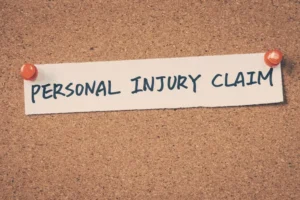What to Expect in Your Personal Injury Claim~3 min read
 When you have been injured, you want a quick recovery, both medically and financially. No one desires a drawn out legal battle that devours your time and leaves you wondering when you can pay your bills. Even though the process is not always quick, knowing what is going on behind the scenes can make the waiting easier. The attorneys at Springer & Lyle can help you navigate the challenges of the system and ensure it goes as smoothly and quickly as possible.
When you have been injured, you want a quick recovery, both medically and financially. No one desires a drawn out legal battle that devours your time and leaves you wondering when you can pay your bills. Even though the process is not always quick, knowing what is going on behind the scenes can make the waiting easier. The attorneys at Springer & Lyle can help you navigate the challenges of the system and ensure it goes as smoothly and quickly as possible.
I. Investigation
Once you hire counsel, there is a period of time where you will be asked to submit information. Because of privacy laws, gathering the necessary medical documentation involves many hurdles. You will be asked to provide information on medical providers, medical insurance, and if an automobile is involved, your auto insurance. You will also have to sign waivers authorizing the release of information. At the same time this is happening, the law firm is gathering factual information, interviewing witnesses and hiring expert witnesses if necessary. This period can require a lot from the law firm staff but will let you focus on getting better and following doctor’s orders.
Waiting
Once documents are requested, the waiting begins. Hospitals and doctors’ offices frequently take several weeks and sometimes months to provide records. Government agencies also have a long response time when accessing such documents as a 911 call or witness statements, videotapes and photographs which support the opinions stated in the police report. Sometimes an attorney general opinion is needed before the information may be produced. This can be a trying time while it seems like nothing is happening on your case when in reality, there is a ton of information being gathered. The staff at Springer & Lyle works hard to keep injured clients informed and to follow up on requests to keep your case moving.
II. Depositions, Mediation, and Other Legal Events
Depending on the complexity of the case and the amount of damages, additional events may occur. In general, larger claims with more significant injuries are likely to have more activity before resolution. You may be required to give a deposition or wait on a deposition taken on others. Depositions are often scheduled weeks or months ahead of time to accommodate all the schedules involved.
Mediation or settlement conferences are often required before any case goes to trial. These conferences also are often scheduled weeks or months in advance and require waiting. Other hearings may take place, as well, many of which you will not be required to attend, but can seem to draw the case out when in reality, the case is being pursued in accordance with a scheduling order signed by the judge.
III. Resolution
Your case will come to an end, even if it seems it has lasted too long. Most cases settle sometime before trial and many are resolved before a lawsuit is even filed. Successful settlement involves communication between your counsel and the other attorneys as well as insurance companies.
If your medical insurance paid part of your medical costs, the insurance company must be included in any settlement agreement and will receive a portion of the settlement amount. This is because your health insurance company has a contractual reimbursement claim. And, depending on the type of policy you have and whether federal or state law applies to it, this will determine the amount which has to be paid back. As such, once an agreement is reached, it still takes some time to receive and appropriately disburse the settlement funds.
If a settlement cannot be reached, your case will go to trial. This can be a time consuming process that will likely involve some expected and unexpected delays. The attorneys at Springer & Lyle can help you determine your best options to recover a fair and reasonable amount regardless of whether you settle or go to trial. Hiring an experienced attorney to guide you through the case can insure that you get a fair settlement and make the process as easy as possible.





